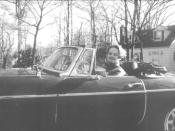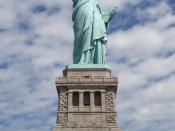The novel's title symbolizes the competitive nature of capitalism; the world of Packingtown is like a Darwinian jungle, in which the strong prey on the weak and all living things are engaged in a brutal, amoral fight for survival. The title of the novel draws attention specifically to the doctrine of Social Darwinism, an idea used by some nineteenth-century thinkers to justify the abuses of wealthy capitalists. This idea essentially held that society was designed to reward the strongest, best people, while inferior people were kept down at a suitable level. By relating the story of a group of honest, hardworking immigrants who are destroyed by corruption and evil, Sinclair tries to rebut the idea of Social Darwinism, implying that those who succeed in the capitalist system are not the best of humankind but rather the worst and most corrupt of all.
The main theme of The Jungle is the evil of capitalism.
Every event, especially in the first twenty-seven chapters of the book, is chosen deliberately to portray a particular failure of capitalism, which is, in Sinclair's view, inhuman, destructive, unjust, brutal, and violent. The slow annihilation of Jurgis's immigrant family at the hands of a cruel and prejudiced economic and social system demonstrates the effect of capitalism on the working class as a whole. As the immigrants, who initially possess an idealistic faith in the American Dream of hard work leading to material success, are slowly used up, tortured, and destroyed, the novel relentlessly illustrates that capitalism is to blame for their plight and emphasizes that the characters' individual stories are the stories of millions of people. The Jungle is not a thematically nuanced or complicated novel: capitalism is simply portrayed as a total evil, from its greedy destruction of children to its cynical willingness to sell diseased...



???
very confusing, but somewhat interesting read.
1 out of 1 people found this comment useful.